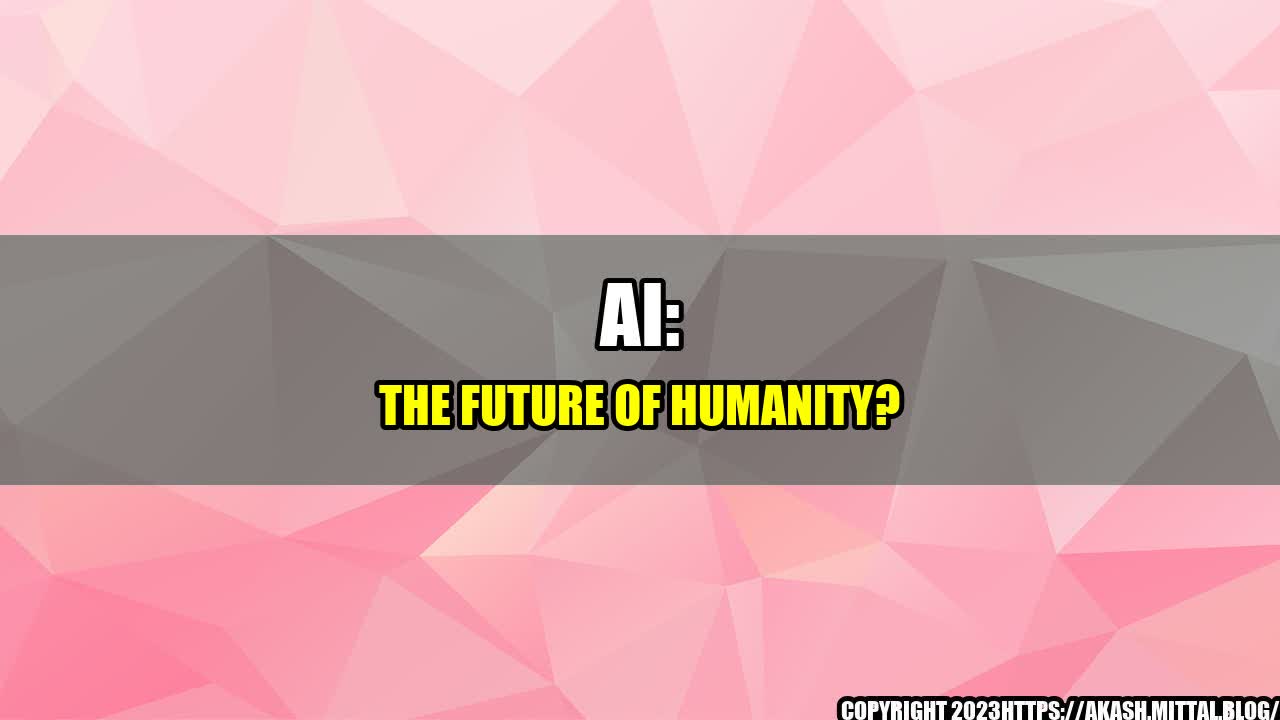Once upon a time, in a not-so-distant future, a young girl named Ava woke up to the sound of her AI assistant, Alexa, gently reminding her to start her day. As Ava prepared for school, she looked around her smart home that adjusted to her preferences automatically, thanks to the sensors and analytics that monitored her habits. Outside, the streets were bustling with self-driving cars that communicated with each other to optimize traffic flow. It was a world that once seemed like science fiction, but now, it was Ava's reality.
While the scenario above may seem far-fetched, the truth is that we are already living in a world where AI is becoming more pervasive and essential to our lives. From voice assistants to algorithms that predict our preferences, AI has already demonstrated its potential to improve our productivity, efficiency and well-being in ways that we could not have imagined. However, with great power comes great responsibility, and it is important to understand the limitations of AI before we let it dictate our future.
AI's Potential
According to a report by PwC, artificial intelligence is expected to contribute $15.7 trillion to the global economy by 2030, with industries such as healthcare, automotive and financial services benefiting the most. In healthcare, AI has the potential to improve patient outcomes by identifying the best treatment plans and predicting health risks. In automotive, self-driving cars are expected to reduce the number of accidents by up to 90%, mostly caused by human error. In financial services, AI-powered chatbots and recommendation systems are improving customer service and increasing sales.
Furthermore, AI has the potential to revolutionize education, entertainment, and environmental conservation, to name a few. In education, AI-powered tutoring systems are already helping students learn at their own pace and personalize their education. In entertainment, AI-generated music and movies are providing new ways for artists to create and engage audiences. In environmental conservation, AI is being used to monitor and protect endangered species and ecosystems.
The Limitations of AI
Despite its potential, artificial intelligence is not without limitations. One of the biggest challenges for AI is lack of common sense and context. While machines can process vast amounts of data and learn from patterns, they do not have the same intuition and creativity as humans. This can lead to unexpected and even dangerous outcomes, as was the case with Microsoft's chatbot, Tay, which within hours of its launch, started spewing racist and sexist comments after being trained by online trolls.
Another limitation of AI is bias and discrimination. Since AI algorithms are trained on data sets that reflect human biases, they can perpetuate and even amplify those biases, leading to unfair and discriminatory outcomes. For example, a study by ProPublica showed that an algorithm used by US judges to decide which prisoners should be released on bail was more likely to give higher scores to white defendants than black defendants, leading to racial disparities in the justice system.
The Future of Humanity
Given the potential and limitations of AI, it is clear that its impact on the future of humanity will depend on how we design, use and regulate it. On the one hand, AI can help us solve some of the biggest challenges facing our planet, from climate change to poverty to healthcare. On the other hand, AI can exacerbate existing inequalities and create new ones if we are not careful.
Therefore, it is important to have a comprehensive strategy that takes into account ethical, social and environmental considerations when developing and deploying AI systems. This includes ensuring transparency and accountability in algorithms, promoting diversity and inclusion in the AI workforce, and engaging in public dialogue about the opportunities and risks of AI. By doing so, we can ensure that AI serves humanity's best interests and not the other way around.
- AI has tremendous potential to improve our lives and transform our industries
- AI has limitations in common sense, creativity, and can perpetuate biases and discrimination
- The future of humanity will depend on our ability to design, use and regulate AI responsibly and inclusively

Curated by Team Akash.Mittal.Blog
Share on Twitter Share on LinkedIn